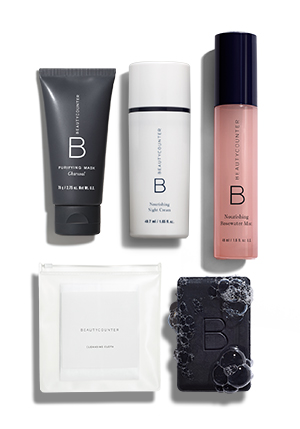12 July, 2018
5 Lifestyle Behaviors at the Root of Your Acid Reflux
Did you know that there are potentially 5 lifestyle behaviors at the root of acid reflux, and high acid production may not be one of them?
I don’t know about you, but I grew up in a household that lived by antacid tablets and pepto bismol, with a constant stock pile in the medicine cabinet and fridge, and a “just go take an antacid” floating around the kitchen table.
I distinctly remember a time when my mom ran around the house frantically looking for the specific flavor of antacid tablets that my dad liked because he had eaten too much at dinner and was so uncomfortable and in pain that he thought he might lose it. Essentially, acid reflux wore the pants at my house.
I honestly grew up assuming it was normal to have acid reflux the older you got, as just about every adult I knew had the exact same issues. As my parents got older however (as did I), my mom’s symptoms got so bad that one day she came home from the doctor’s office with an official diagnosis- the dreaded GERD, or gastroesophageal reflux disease, typically accompanied by actual erosion of the esophagus and increasing the chances for other very serious side effects. She also came back with a shiny new bottle of little purple pills. Nexium, like other proton pump inhibitors (PPIs; think Nexium, Prilosec, Prevacid, Protonix, Tums), STOP the stomach’s cells from creating stomach acid during the digestion process, which greatly reduces the acid that can slosh into the esophagus at any given time, reducing pain and erosion associated with GERD and reflux.
What my mom wasn’t told however was that this medication, and any acid suppressing or neutralizing medicine, should only be used for a short time and can lead to multiple vitamin and mineral deficiencies, ulcers in the stomach, bacterial infections in the intestine, and a slew of digestive disorders if used long term.
This study correlates an increased long-term and overutilized use of PPIs with vitamin B12, calcium, vitamin C, and iron deficiency (Heidelbaugh, 2013).
This study highlights the potential side effects of renal damage, fractures related to osteoporosis, pneumonia and c. difficile infections, and anemia with long term use (Yu, Sun, Zhang, Li, Yu, Yuan, … Wang, 2017).
And this article relates PPI use with small intestinal bacterial overgrowth, travelers diarrhea, and magnesium deficiency (Johnson, & Oldfield IV, 2013).
Fortunately, we now know that there are so many lifestyle causes of acid reflux disease, that when changed can completely reverse all signs and symptoms without the harsh side effects of prescribed drugs. Because, just so you know- reflux is not normal, belching after a meal is not normal, constipation is definitely not normal, and neither is abdominal bloating or distention.
Do you suffer with acid reflux or GERD, or really any digestion related issues? Let’s take a peek at 5 potential lifestyle behaviors that might be at the root cause of your reflux symptoms:
1. Eating then going straight to bed
When you eat a meal this triggers the stomach to create acid to begin the digestion process. Laying down or going to bed right after a meal is like turning the liquid-filled ziplock bag upside down and praying that it doesn’t bust open.
2. A high carbohydrate or sugar diet
Quite a few studies have shown a huge correlation between a high carb, high sugar diet and an increase in reflux symptoms, with most symptoms completely resolving once the carbs in their diet have been reduced. Think bread, pasta, soda, candy, and sweets.
3. Stress; before, during, or after eating
Stress increases stress hormones in the body, causing the less blood flow to the digestive organs, which can lead to reflux, constipation, diarrhea, abdominal pain, belching, and just flat out discomfort. If you’re looking to decrease reflux and increase proper digestion, try setting aside a relaxing time to eat, away from the tv or the work desk. Your tummy will thank you!
4. Bingeing; eating an excessive amount all at once
I can’t even begin to count how many antacids were popped at my house during the holidays. Too much food means too much pressure in the stomach, causing the valve between the stomach and esophagus, or the zip on the ziplock bag, to bust open or leak acid and food into the esophagus. Hello reflux! Try only eating until you’re 80% full- just enough, but not too much. Or as Confucian would say, Hara hachi bu.
5. Alcohol and dairy at meals
Sorry guys! Though a daily glass of red wine with dinner does have its health benefits, it can actually increase symptoms of reflux. This can be linked to alcohol, similarly to dairy, loosening the seal on the valve separating the stomach and esophagus, or the gastroesophageal sphincter, allowing acid to escape into the esophagus easily, and burn baby, burn!
Just remember, it’s not always about the overabundance of acid in the stomach that causes the symptoms. Reflux is actually more often related to a poorly sealing valve. Think of it this way; no matter how much water you pour into a ziplock bag, if the zip doesn’t close fully you’re gunna get wet, and taking some of the water out of the bag won’t fix this problem. We’ve got to work on fixing the zipper instead.
If you’re having digestive issues in general or have dealt with reflux or GERD for weeks or for years and need help getting to the root cause? Learn more about working with Sara by clicking on the link below to schedule a free 30 minute discovery call. Because no, it’s not normal. But it is possible to heal. So cheers to you on your personal health journey!
written by Paula Cole, MS, NDTR
References:
Johnson, D., & Oldfield IV, E. (2013). Exam 1: Reported Side Effects and Complications of Long-term Proton Pump Inhibitor Use: Dissecting the Evidence. Clinical Gastroenterology and Hepatology, 11(5). doi:10.1016/j.cgh.2013.03.002
Heidelbaugh, J. J. (2013). Proton pump inhibitors and risk of vitamin and mineral deficiency: Evidence and clinical implications. Therapeutic Advances in Drug Safety, 4(3), 125-133. doi:10.1177/2042098613482484
Yu, L.-Y., Sun, L.-N., Zhang, X.-H., Li, Y.-Q., Yu, L., Yuan, Z.-Q.-Y., … Wang, Y.-Q. (2017). A Review of the Novel Application and Potential Adverse Effects of Proton Pump Inhibitors. Advances in Therapy, 34(5), 1070–1086. http://doi.org/10.1007/s12325-017-0532-9











I just found you on Instagram. Great post! For years I obsessed over the right flavor of antacids as well! So thankful for information like this that has helped me address acid reflux without relying on those medicines or antacids. As you mention, I suffered with numerous side effects from the drugs. Now that I’m off of them I intend to keep it that way!
I am so happy to help educate! I am glad you were able to get off them.